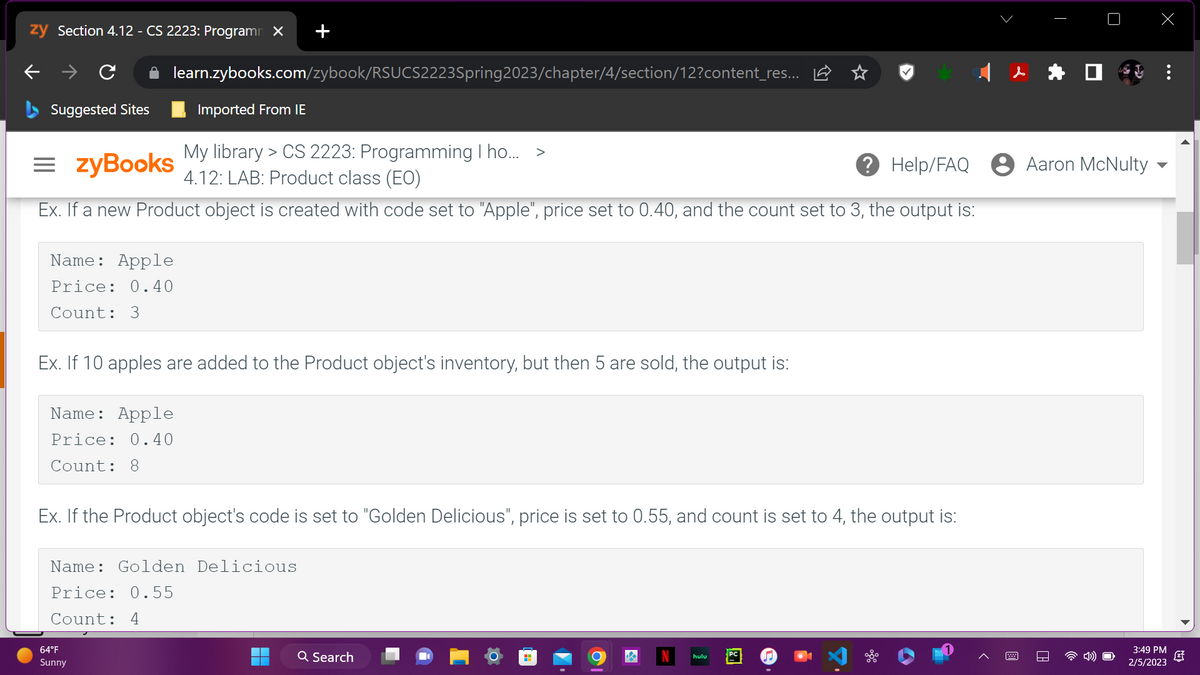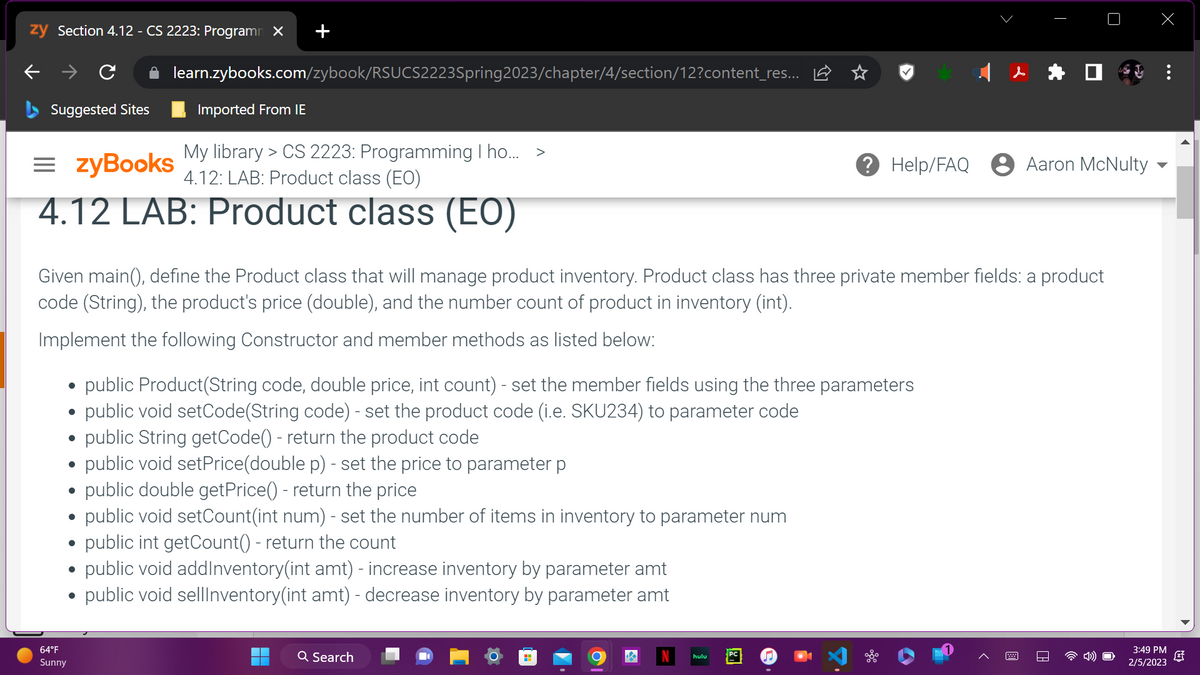Implement the following Constructor and member methods as listed below: • public Product(String code, double price, int count) - set the member fields using the three parameters • public void setCode(String code) - set the product code (i.e. SKU234) to parameter code • public String getCode() - return the product code • public void setPrice(double p) - set the price to parameter p • public double getPrice() - return the price • public void setCount(int num) - set the number of items in inventory to parameter num • public int getCount() - return the count • public void addInventory(int amt) - increase inventory by parameter amt • public void sellInventory(int amt) - decrease inventory by parameter amt
import java.util.Scanner;
public class Product {
// Build Product class with public methods and private fields listed above
/* Type your code here. */
// main
public static void main(String args[]) {
String name = "Apple";
double price = 0.40;
int num = 3;
Product prod = new Product(name, price, num);
// Test 1 - Are instance variables set/returned properly?
System.out.println("Name: " + prod.getCode());
System.out.printf("Price: %.2f\n", prod.getPrice());
System.out.println("Count: " + prod.getCount());
System.out.println();
// Test 2 - Are instance variables set/returned properly after adding and selling?
num = 10;
prod.addInventory(num);
num = 5;
prod.sellInventory(num);
System.out.println("Name: " + prod.getCode());
System.out.printf("Price: %.2f\n", prod.getPrice());
System.out.println("Count: " + prod.getCount());
System.out.println();
// Test 3 - Do setters work properly?
name = "Golden Delicious";
prod.setCode(name);
price = 0.55;
prod.setPrice(price);
num = 4;
prod.setCount(num);
System.out.println("Name: " + prod.getCode());
System.out.printf("Price: %.2f\n", prod.getPrice());
System.out.println("Count: " + prod.getCount());
}
}


Trending now
This is a popular solution!
Step by step
Solved in 3 steps with 3 images




